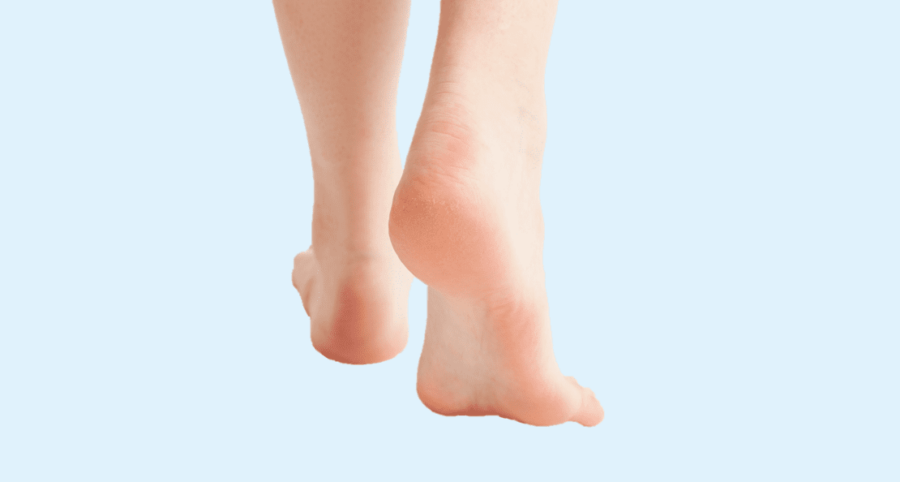
Have you perhaps noticed a bump on the top of your feet, and it’s getting bigger and bigger? Are your feet getting increasingly stiffer, to the point where it’s becoming difficult to put on your shoes without pain?
All of these could hint at the presence of a cavus foot.
At first, this type of foot arch is not particularly uncomfortable.
However, your feet could be negatively affecting other joints, if you find that your toes are curling in.
Here are the various types of pain that can occur as a result of cavus feet, and appropriate treatments for each one.
Cavus feet: knee pain
Your feet and knees complement one another in balancing your body. Therefore, it is inevitable that an imbalance resulting from a foot deformity will also damage these joints.
Since cavus feet affect the stability of your legs and reduce their capacity for shock absorption when you walk, your knees end up compensating.
This exerts additional pressure on them, consequently accelerating the breakdown of your cartilage, which can lead to pain and arthritis.
Cavus feet: heel pain
If you have cavus feet, you may have noticed that their support is not as sturdy as it should be.
Your toes and heel end up having to work harder to absorb shock, seeing as this type of foot puts all your weight on them.
A hollow foot that puts too much weight on the heel can cause the following:
- Bursitis or panniculitis in the heel;
- Cracks and skin lesions;
- An accumulation of calluses.
Cavus feet: ankle pain
Your ankles have the purpose of coordinating your feet and legs.
However, due to the fact that cavus feet disrupt your balance, your ankles have to work harder to ensure smooth movement.
You may experience even more pain if you regularly participate in activities such as walking, hiking, or gardening.
However, you can reduce the occurrence of discomfort with only a few changes to your habits:
- Wearing shoes that are fitted to your body type;
- Using heel padded shoes or orthopedic insoles;
- A warm-up program before your activities.
Of course, if it seems like your ankles are deviating from their natural axes, it is important to seek out the help of your podiatrist.
They will be able to offer you other suitable solutions.
Cavus feet: valgus
The cavus foot valgus refers to a foot whose heel is strongly inclined to the ground when walking.
Because of the constant pressure that it puts on the heels, the valgus can thus prove to be especially painful.
A valgus high arch can cause symptoms such as:
- An axial change in the legs;
- Calf cramps;
- Bursitis in the heel;
- Achilles tendinitis;
- Plantar fasciitis;
- Bunion (hallux valgus);
- Metatarsalgia.
If you wish to prevent the complications of a valgus, it is important to act without delay at the very first symptoms.
Booking a visit to a podiatry clinic is an excellent way to avoid this discomfort.
The consequences of cavus feet in adults and available treatments
Whether the cavus feet are congenital or acquired, this type of plantar deformity can become a real disaster if not treated quickly.
In addition to localized pain in the foot, the following consequences can occur along with the onset of cavus feet:
- Chronic back pain;
- Inadequate change in posture;
- A deformity of the hammertoes;
- More frequent sprains;
- Increased muscle stiffness.
If you choose to let a podiatrist take care of your cavus feet, they can provide treatments such as:
- Manual foot therapy;
- Prescription of foot orthoses.
As a general rule, the podiatrist’s treatment is as noninvasive as can be, and foot surgery is only considered as a last resort.
PiedRéseau offers solutions adapted to all types of feet
Whether your feet are cavus, flat, or normal, you should always pay special attention to pain that hinders you in your daily activities.
PiedRéseau features many podiatry clinics established throughout the province in order to offer you fast and specialized care, anywhere in Quebec. Are your cavus feet bothering you? Consult your podiatrist now!